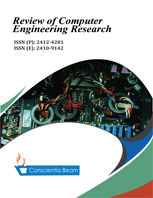Software reliability prediction using ensemble learning with random hyperparameter optimization
DOI:
https://doi.org/10.18488/76.v11i1.3597Abstract
The paper investigates software reliability prediction by using ensemble learning with random hyperparameter optimization. Software reliability is a significant problem with software quality that developers face. It involves accurately predicting the next failure. In recent years, machine learning techniques and ensemble learning approaches have been applied to improve software reliability prediction. These approaches aim to analyze historical data and develop models that can accurately forecast when failures are likely to occur. The article proposes an ensemble learning regression model using Ridge, Bayesian Ridge, Support Vector Regressor (SVR), K-Nearest Neighbors Algorithm (KNN), Regression tree, Random Forest, Neural network, and Decision Tree as base learners. Ridge is used as a combiner model. Each base learner hyperparameter is tuned using a random search algorithm automatically. A random hyperparameter search optimization algorithm selects the hyperparameter and adjusts it for overfitting and underfitting. The base models are tuned to minimize bias and variance. The performances of the models are evaluated using standard error measures such as Mean Squared Error (MSE), Sum of Squared Error (SSE), and Normalized Root Mean Square Error (NRMSE). The proposed ensemble model is compared with existing models using a benchmark dataset. The Iyer,and Lee, and Musa datasets are used for the experiment. The dataset is scaled using standard methods like logarithmic scaling, lagging, and linear interpolation. The results of the statistical comparison show better performance by our proposed model as compared to existing models.





